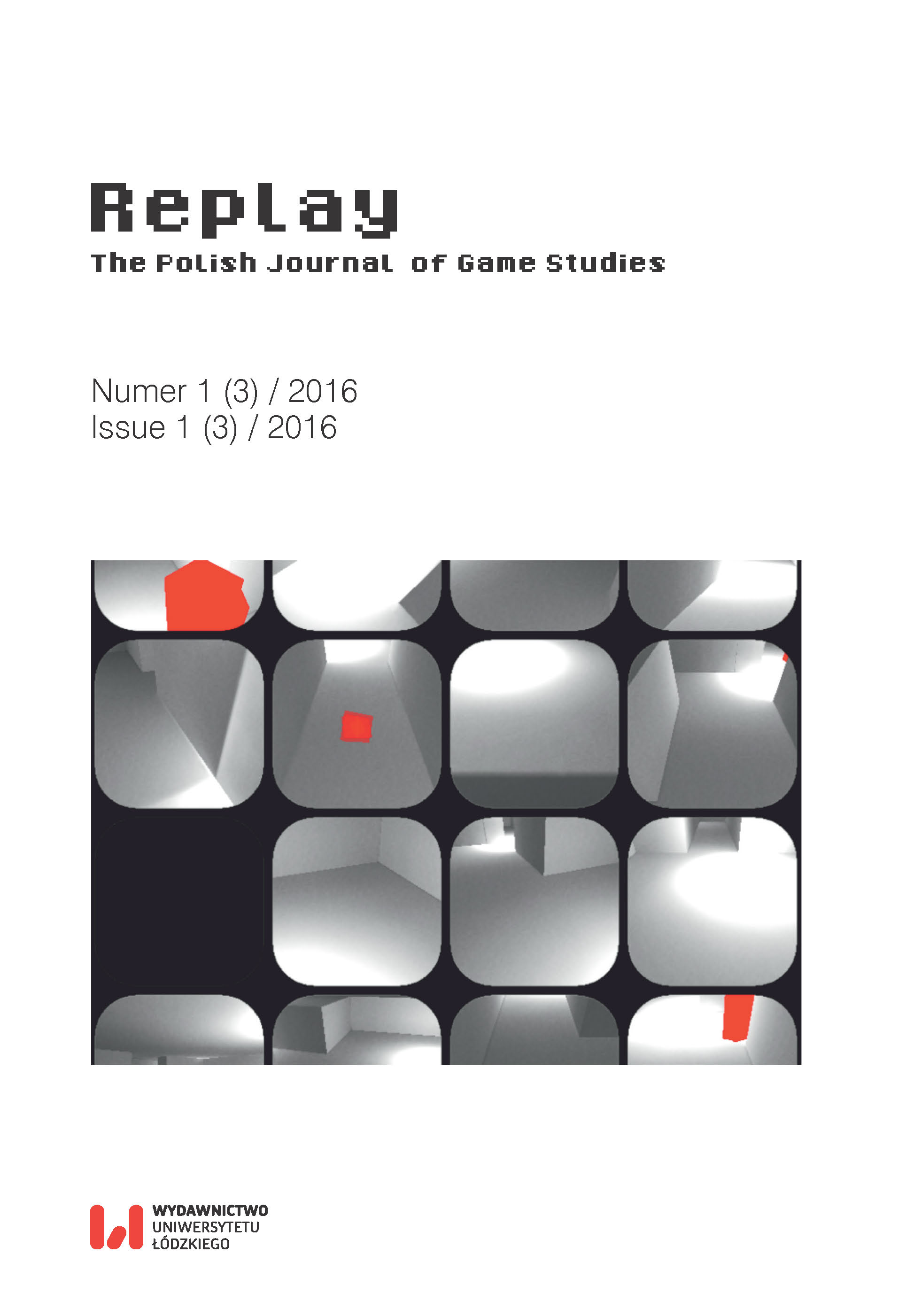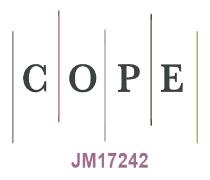Gram, więc jestem. Instancja autorska a konwencja „let’s play” w serii „File System Aging” Roberta Florence’a
DOI:
https://doi.org/10.18778/2391-8551.03.08Keywords:
tv format, transgressive player, ergodist, auteurAbstract
The aim of this article is to analyse let’s play not only as entertaining act of communication but also as an eclectic one which can make games exceed themselves. Let’s play as a method of game critique has developed some key characteristics. It’s not surprising, then, that one can observe the emergence of various subversive forms such as Robert Florence’s series “File System Aging” which rises as antithesis to the most popular channels. Florence directs his own player experience by merging software studies, ludology, stream of consciousness, and oneiric aesthetics known from David Lynch’s movies in order to defragment scattered memory of a gamer and a son. This article will look into the method of transgressive playformance and haptic interpretation used by the artist to expand the definition of a let’s play and therefore also that of a game.
References
Aarseth, Espen, 2007, I Fought the Law: Transgressive Play and the Implied Player, „DiGRA ‘07 – Proceedings of the 2007 DiGRA International Conference: Situated Play”, IV, online: http://www.digra.org/digital-library/publications/i-fought-thelaw-transgressive-play-and-the-implied-player/.
Google Scholar
Frasca, Gonzalo, 2007, Play the Message: Play, Game and Videogame Rhetoric, Kopenhaga, online: http://www.powerfulrobot.com/Frasca_Play_the_Message_PhD.pdf.
Google Scholar
Garda, Maria B., 2014, Nostalgia in Retro Game Design, „DiGRA ’13 – Proceedings of the 2013 DiGRA International Conference: DeFragging game studies”, VII, online: http://www.digra.org/digital-library/publications/nostalgia-in-retro-game-design/.
Google Scholar
Godzic, Wiesław, 2004, Telewizja i jej gatunki. Po „Wielkim Bracie”, Krakow: Universitas.
Google Scholar
Hale, Thomas, 2013, From Jackasses to Superstars: A Case for the Study of “Let’s Play”, Roehampton, online: https://www.academia.edu/5260639/From_Jackasses_to_Superstars_A_Case_for_the_Study_of_Let_s_Play_September_2013_.
Google Scholar
Kłoda-Staniecko, Bartłomiej, 2012, Gram,… więc kim jestem? Rola i funkcja gracza w relacji z medium ergodycznym, [w:] Andrzej Pitrus (red.), Olbrzym w cieniu, Krakow: WUJ, ss. 91–102.
Google Scholar
McGowan, Todd, 2000, Finding Ourselves on a „Lost Highway”: David Lynch’s Lesson in Fantasy, „Cinema Journal”, II.
Google Scholar
DOI: https://doi.org/10.1353/cj.2000.0005
Mittel, Jason, 2001, A Cultural Approach to Television Genres, „Cinema Journal”, III.
Google Scholar
Proust, Marcel, 1937, W poszukiwaniu straconego czasu. W stronę Swanna, online: https://wolnelektury.pl/katalog/lektura/w-strone-swanna.html.
Google Scholar
Sack, Warren, 2008, Memory, [w:] Matthew Fuller (red.), Software Lexicon, Cambridge, Londyn: The MIT Press, ss. 184–193.
Google Scholar
DOI: https://doi.org/10.7551/mitpress/9780262062749.003.0026
Sicart, Miguel, 2011, Against Procedurality, „game studies”, III, online: http://gamestudies.org/1103/articles/sicart_ap.
Google Scholar
Activision, 1986, Alter Ego, USA: Activision.
Google Scholar
Interplay Entertainment, 1991, Another World, Francja/USA: Interplay Entertaiment.
Google Scholar
Beam Software, 1984, Castle of Terror, Australia: Beam Software.
Google Scholar
DreamWorks Interactive, 2001, Clive Barker’s Undying, USA: Electronic Arts.
Google Scholar
Ozar Softscape, 1983, M.U.L.E, USA: Electronic Arts.
Google Scholar
Appeal, 1999, Outcast, Belgia/Francja: Infogrames.
Google Scholar
Monolith Productions, 1998, Shogo Mobile Armor Division, USA: Monolith Productions.
Google Scholar
Epic Games, Digital Extremes, 1999, Unreal Tournament, Kanada/USA: GT Interactive.
Google Scholar
Origin Systems, 1994, Wing Commander III: The Heart of the Tiger, USA: Origin Systems.
Google Scholar
https://www.youtube.com/watch?v=AS4VvxenwqQ.
Google Scholar
https://www.youtube.com/watch?v=3V_TO6pOYA0.
Google Scholar
https://www.youtube.com/watch?v=tg8QM-gxUqg.
Google Scholar
https://www.youtube.com/watch?v=je0l6dO2EVs.
Google Scholar
https://www.youtube.com/watch?v=L4Npcc4WdRg.
Google Scholar
https://www.youtube.com/watch?v=HhX2pdDOJfo.
Google Scholar
Rojo, 2011, „The Elder Scrolls V: Skyrim #1 – początek i tworzenie postaci (Roj-Playing Games!)”, Online: https://www.youtube.com/watch?v=hDaNUkSiHxU.
Google Scholar










